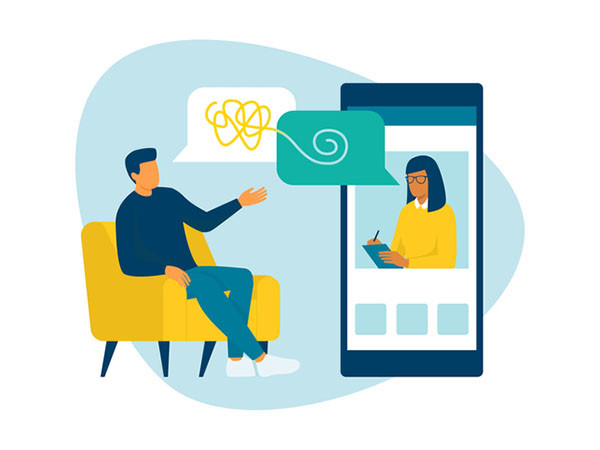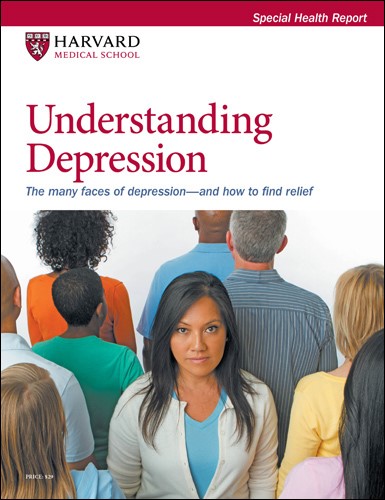Is a mobile app as good as a therapist?

For the past two months your mood has been low, you've lost your appetite, and you can't sleep well. Your family is concerned because you are no longer interested in cooking or reading, activities you had previously enjoyed. The stress of the pandemic has changed your routine, and you struggle to balance your remote work, childcare duties, household management, and the care of your ill father. You tried to reach out to a therapist, but after an extensive search online, you found the first available appointment to be months away. A good friend suggested mobile therapy apps, but do they work?
What does the research say?
Mental health apps claim to treat depression, anxiety, and other mental illnesses without therapy appointments. There's no wait time involved, and every person with a smartphone has immediate access. In addition to their convenience, many apps are free. If this sounds too good to be true, you may be right.
Research looking at randomized controlled trials of mobile app mental health interventions with almost 50,000 patients did not find "convincing evidence" that any mobile app intervention greatly improved outcomes related to people's anxiety, depression, smoking or drinking, thoughts of suicide, or feelings of well-being. While this sounds unfortunate, this may be related to the study methods in which researchers grouped interventions together that may be completely different. A small trial with a positive effect could thus appear unhelpful if its effects are combined with less helpful interventions.
Treatments work when we believe in them. One study compared the popular meditation app Headspace to a sham version (which included guided breathing but without the active component of mindfulness). Study participants reported improved outcomes (critical thinking and mindfulness) with both active and sham versions, which suggests that the active ingredient may not be in the intervention component itself.
What about computerized cognitive behavioral therapy (CBT) programs for depression? Researchers from the UK studied the effects of the most popular CBT programs (Beating the Blues and MoodGYM), and they also did not find any benefit compared to care as usual in primary care.
What can we make of these results?
Research on the mental health effects of mobile apps is still in its infancy, and we will have more to guide us in the next few years. Low-touch interventions like mobile apps may help get you through a rough time, or at least help increase your symptom awareness. Will it treat your depression? Probably not, but it may help if you believe in it.
Mobile apps can complement therapy
When looking at the many types of psychotherapy available, interestingly, they all result in a similar amount of symptom improvement. The strongest factor in helping patients make progress is actually the relationship with the therapist. Having a secure place to speak about your stressors, seeing your concerns validated in the eyes of another person, and developing a trusting relationship are all components of therapy. A mobile app removes the human element of a therapeutic relationship, which we know is a critical ingredient in treatment success. However, mobile apps can complement therapy through symptom trackers, reminders, reinforcement of skills, and community features to set goals and share progress.
When mobile apps are not enough
Although mobile apps may seem harmless, there are a couple reasons you may want to look into a specific app or hold off altogether. The first is privacy concerns: many apps are not transparent about their security features, and less than half of mobile apps for depression have a privacy policy. The second is a delay in treatment. Although mobile apps are becoming more promising and data-driven, they cannot replace a trained mental health clinician at this time. If you are suffering from severe symptoms, you will likely need more than a mobile app can provide you: a correct diagnosis, a human relationship, and an individualized discussion about your treatment options.
How do you choose a good mobile app?
With thousands of mental health apps available online, finding one that works for you may take some trial and error. I recommend the following apps based on their evidence base, usability, security features, and my clinical experience.
- For insomnia: CBT-i Coach
- For post-traumatic stress disorder: PTSD Coach
- For stress related to COVID: COVID Coach
- For learning distress tolerance skills: DBT Coach
- For managing your mood and anxiety: CBT Thought Diary
- For monitoring your mood/memory and keeping your mind sharp: THINC-it.
About the Author

Stephanie Collier, MD, MPH, Contributor; Editorial Advisory Board Member, Harvard Health Publishing
Disclaimer:
As a service to our readers, Harvard Health Publishing provides access to our library of archived content. Please note the date of last review or update on all articles.
No content on this site, regardless of date, should ever be used as a substitute for direct medical advice from your doctor or other qualified clinician.
















